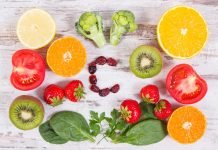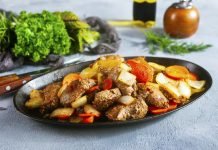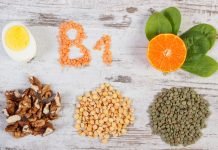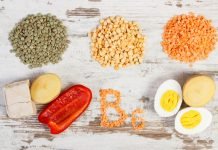Vitamin B12
Vitamin B12 also known as cobalamin, is a water-soluble vitamin. Food sources include liver, beef, pork, eggs, milk, cheese and fish and even desiccated liver.
Eating a healthy balanced diet is the best way to get the vitamin B12 you need.
Proven health benefits of vitamin B12
- Supports the metabolism
- Helps digestion
- Promotes heart health and circulation
- Alleviates stress and depression
- Reduces tiredness and fatigue
- Helps prevent anaemia
Benefits of vitamin B12
1) Supports the metabolism
Vitamin B12’s primary role is to aid in metabolism, which is how your body creates and uses energy.
According to the University of Maryland Medical Center, vitamin B12 helps regulate digestion, absorption, respiration, circulation and body temperature. (1)
2) Reduces cancer risk
The Memorial Sloan-Kettering Cancer Center states that combining vitamin B12 with folate and vitamin B6 may help reduce the risk of breast cancer. (2)
3) Relieves illnesses and fatigue
Vitamin B12 is also beneficial for certain cardiovascular disorders, fatigue and restless leg syndrome. Your doctor may prescribe B12 injections if you have pernicious anaemia.
Causes of B12 Deficiency
Some individuals have a higher risk of vitamin B12 deficiency, including alcoholics and smokers, because nicotine can block absorption. Individuals with digestive disorders, such as celiac and Crohn’s disease, also have a higher risk. (3)
Symptoms of B12 deficiency
Vitamin B12 has many functions in the body. It follows that vitamin B12 deficiency can result in a myriad of different symptoms, including chronic fatigue, mood disorders, and chronic stress. (3)
Vitamin B12 works well with
- Zinc and other B vitamins to ensure the proper digestion of carbohydrates, protein and fats
- Vitamin C, taken alongside B vitamins, can help support the absorption and utilisation of nutrients
- Ginseng, guarana, iron and C0-Q10 to alleviate fatigue and tiredness
- Folic acid and vitamin B6 for homocysteine metabolism
How much do you need?
Individuals aged between 19-64 need around 1.5mcg of vitamin B12 a day.
If you eat meat, fish or dairy foods, you should be able to get enough vitamin B12 from your diet. According to the National Health Service (NHS), vitamin B12 isn’t found naturally in foods such as fruit, vegetables and grains. It follows that vegans may not get enough vitamin B12.(4)
Resources:
- https://healthfully.com/256121-what-is-vitamin-b12-good-for.html
- https://www.mskcc.org/cancer-care/integrative-medicine/herbs/vitamin-b12
- https://draxe.com/nutrition/vitamin-b12-benefits/
- https://www.nhs.uk/conditions/vitamins-and-minerals/vitamin-b/






